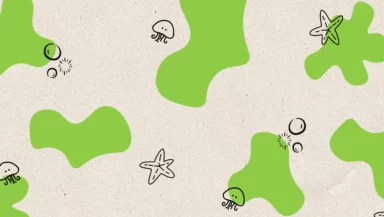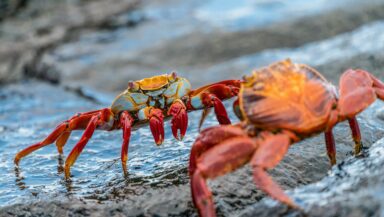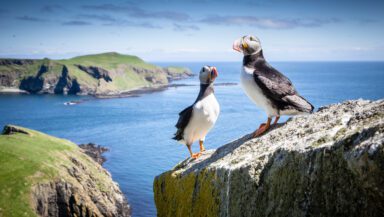Industrial fishing is a major threat to whales
For this whale, the story goes on. But many thousands of whales and dolphins are not quite as lucky.
Getting caught in fishing gear is the leading cause of death for whales and dolphins, killing over 300,000 each year. Ships often collide with whales too, making it the second biggest cause of death.
Add problems like plastic pollution and climate change to the threats from industrial fishing, and you start to see a grim picture for our oceans.
But we’ve long known there is an answer: ocean sanctuaries.
Ocean sanctuaries can help – and we need governments to take action now
Ocean sanctuaries – like national parks at sea – play a vital role in protecting ocean life. These areas would restrict fishing activities, providing a safe space for animals like whales to live, feed and bring up their children. Scientists say we need to protect 30% of our oceans by 2030 to stop their decline.
So far, world leaders have agreed on a Global Ocean Treaty. The Treaty is a major step for ocean protection. It makes it possible to create vast ocean sanctuaries where marine life can recover and thrive. But this can only begin once at least 60 governments have signed it into law.
The UK government played a leading role in negotiations for the Global Ocean Treaty in March. At the UN in September, it was also one of the first to say it plans to sign the Treaty into law. It looked like the government was on track to take the urgent action our oceans need. But now it’s planning to delay signing the treaty into law until after the next general election.
Any delay affects ocean sanctuary creation – meaning whales like the one saved last week won’t get the protection they need for even longer.
We know the government wants to be an ocean leader. But it currently risks stamping out this legacy and its commitment to 30% ocean protection by 2030. The steps the government can take to protect the oceans right now are clear: ratify the Treaty, ban deep sea mining, end new oil and gas.
Our leaders made a promise. Now they must keep it.
Tell UK leaders to act on ocean protection
The UK government made a promise to protect our oceans – and they must keep it. Tweet, call or email your MP now.
Take action









